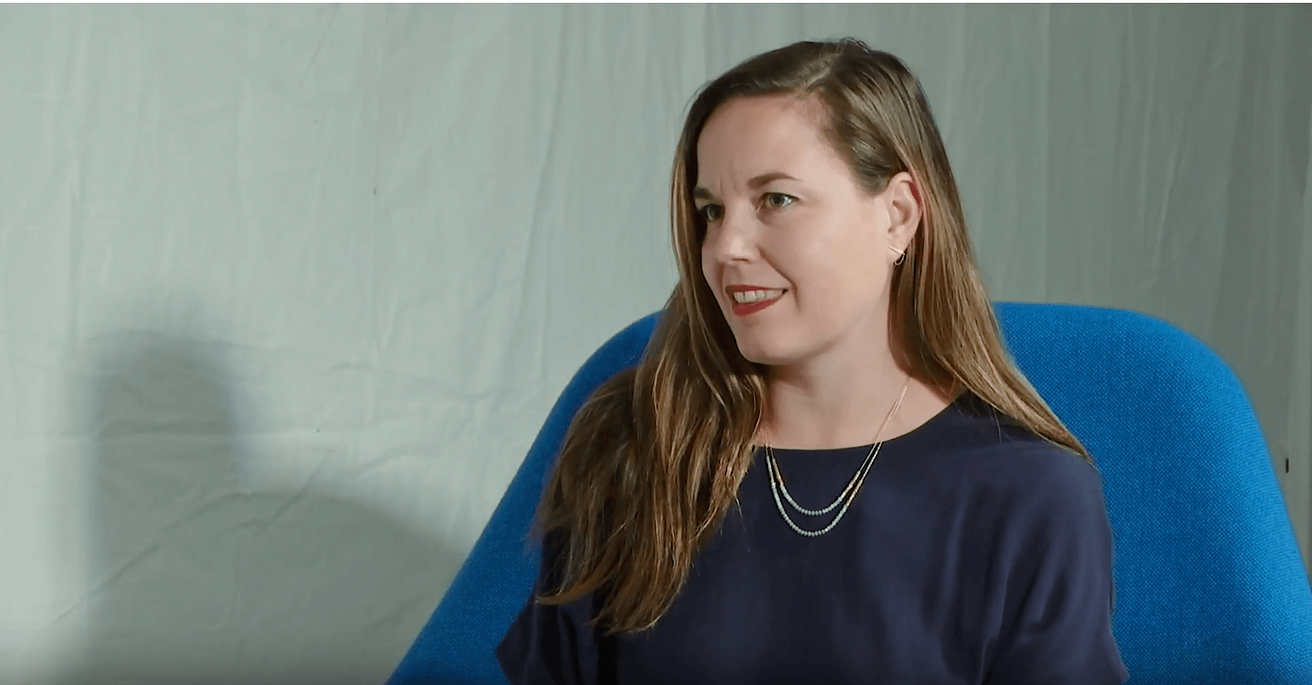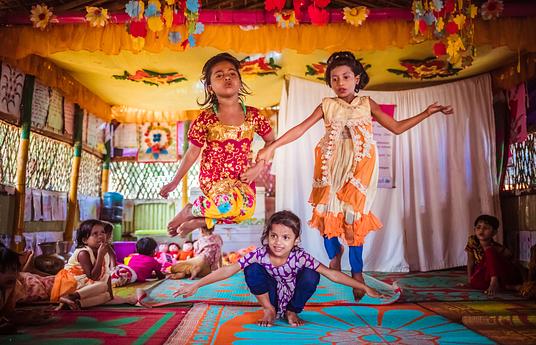Devon McLorg is the Director of Education for BRAC based in New York. The BRAC headquarters are located in Dhakar, Bangladesh. BRAC implements play based learning centres for Rohingya refugees. The crux of their model is to bring playful learning experiences to children who have been affected by violence and trauma and to offer them in most cases, their first opportunity to learn in a camp based setting.
How can play based learning help displaced children who need extra support?
First of all, I think play is something that supports all children’s learning. We know that it’s especially effective in these kinds of contexts because of the therapeutic aspect of play. Children in these crisis affected situations often miss out on their childhood really and so by carving out space for them to have time that’s completely dedicated to explore that side of themselves is really important. Play is known to draw out creativity and to help develop a number of critical skills for young children as they’re developing. We want to offer that to these children especially because their development can become stunted by being affected by trauma, conflict and crisis. Some skills that we know that play can help develop are: cognitive development, social emotional learning, problem solving. We also know that play can be conducive to pre-literacy and pre-numeracy and the children don’t even realize necessarily that they’re learning. So it also offers a nice break from the context outside of the spaces where we’re opening the learning centres and the child friendly spaces because it’s completely dedicated to them, their safety, their protection, their enjoyment and also their ability to kind of relish in their own cultural playful activities.
How important is context when designing an innovation like BRAC play based learning? How could this innovation be applied to other humanitarian contexts?
Context is everything. I absolutely think that it’s not possible to replicate any program model. What we know in Bangladesh and what works in Bangladesh having decades of experience there is not going to translate exactly to another context like Uganda or Tanzania as we’ve learned with our play lab model, which this model for the refugees is based off of. So what you need to do is you need to learn from the community, you need to consult the community and you need to consult the children themselves. What does play mean to them? Play can look different in Bangladesh, it can look different in Myanmar, it can look different in Tanzania and Uganda. What we actually found almost right away was that these kids did bring with them a ton of knowledge about different playful activities, rhymes, songs that they wanted to teach our staff and it was a really wonderful cross learning exchange, to basically learn how these children played in their home country and be able to adapt our own curriculum to incorporate their cultural heritage.
What impact is this innovation having for Rohingya children?
We’re at the very beginning of measuring the impact. We are designing a robust study that we are currently working on securing funds for. It’s not finalized yet. We are designing a robust study so that we can really assess the impact that this model has on developing children’s resilience and in supporting their social-emotional learning in this context. We already started a similar study in more stable environments in Bangladesh and we know that we’re already seeing effects on children’s cognitive development. Their fine motor skills, gross motor skills and we hope and anticipate that we’ll see similar developmental impacts on these kids. Obviously because context matters, it could vary and we’ll be looking for some different outcomes from the more stable environments because we know the kinds of skills that children need to develop in these extremely challenging environments may be different. I mentioned resilience earlier, but that really is one key focus area for us. We know that on average, an average refugee stays 17 years displaced from their home. So we’re anticipating that this could be a protracted situation, we want to be able to prepare these kids for the setting that they’re in, knowing that they could be there for the long term. Some of the kids that we have brought into our centers were severely traumatized, many of them are orphans, some of them have made their way over and have lost all of their family members. We’ve actually been involved in reuniting some of the children but in those very extreme cases, we’ve found that intensive psycho social support and counselling and then mentoring the caregivers on how they can continue to provide support in the home has been really important in helping to rebuild these children's confidence and sense of security and safety. We do see there are some outliers and you do see for example some aggression in the classroom at times. You’ll see it come out in the drawings that the children are producing, acts of violence, or drawing guns, or burning villages or things like that. As time goes on, you’re hoping to work with them through the psycho social support mechanism to help address the aggression but also acknowledge that it’s valid. To help them channel it in a more productive way. I think it’s also that most of these children have never had the opportunity to go to school or if they did have the opportunity to go to school, they were marginalized inside the classroom. Their teachers would ignore them. So it’s beautiful to see the resilience and joy that these kids have by having their first opportunity to learn even in an incredibly challenging context, they still can find safety, hope and joy there.
To learn more about BRAC Play-Based Learning Centers, visit their Innovation Page on HundrED.

